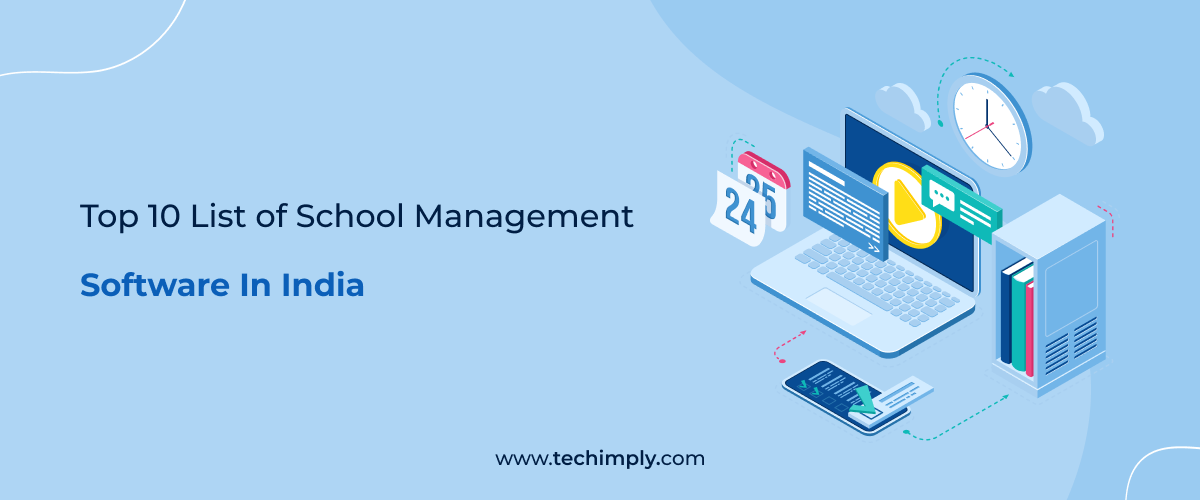Supply chain management plays a pivotal role in the success of any business, impacting efficiency, cost-effectiveness, and customer satisfaction. In today's dynamic business landscape, implementing robust supply chain management software (SCMS) is essential for staying competitive and streamlining operations.
One key aspect of SCMS is route optimization, which is crucial for efficient logistics. So, in this blog post, let’s explore the best practices for implementing and adopting supply chain planning software with a particular focus on the importance of best route optimization software.
However, if you are handling an online delivery service business and are in a hurry to pick the best route, you need to use route optimization software. If you want to know the best route optimization software, find the complete list here. From this list, you will get a complete overview of various route optimization software which helps you to pick the best route for your business.
Coming back to our blog topic, let us check the best practices for implementing and adopting supply chain management software.
10 Best Practices for Implementing and Adopting Supply Chain Management Software
Before knowing about the best practices, let’s get an overview of SCM software solutions. According to Statista, the supply chain management software market size is projected to reach a valuation of over 12 billion U.S. dollars by 2026.
This data shows that businesses are willing to implement SCM software solutions and adopt the new changes as per the new market standards.
However, if every business owner implements the software, then how will you differentiate and compete in the market? This is where knowing and executing the best practices during your SCM software help you.
Here are the crucial points that one should consider before implementing and adopting SCMS:
Assessing Business Requirements
Before selecting an SCMS, perform a comprehensive analysis of your supply chain's unique needs. Identify pain points and areas of improvement, and prioritize features that align with your business objectives. When it comes to route optimization, prioritize software that offers intelligent algorithms, real-time updates, and flexibility to adapt to changing conditions.
Conducting Thorough Research
Explore various SCMS providers and the best route optimization software solutions available in the market. Evaluate their track records, customer reviews, and case studies to ensure they align with your industry and business model.
Look for ERP software that provides a user-friendly interface and seamless integration with your existing systems. However, if you want to know the best ERP solution you can check the list of the 20 best ERP software in India and choose the best fit for your business. A few of the popular SCM software are:
- Zoho Books
- HostsBooks Accounting
- Tally ERP 9
- Real ERP
- Microsoft Dynamics 365
Involving Stakeholders from the Start
Engage key stakeholders from different departments during the selection process. Their insights will help identify pain points and gather valuable feedback on potential SCMS solutions. Involving them early fosters a sense of ownership and increases acceptance during the implementation phase.
Fostering a Culture of Adaptability
Successful SCMS adoption requires a culture that embraces change and continuous improvement. Encourage open communication and training sessions to familiarize employees with the software's functionalities and benefits. Demonstrating the advantages of route optimization in improving efficiency and reducing costs can drive enthusiasm among teams.
Data Accuracy and Integration
Accurate and up-to-date data is the lifeblood of effective supply chain management. Ensure that data quality is consistent across all systems and establish seamless integration between the SCMS and existing software platforms, such as ERP systems and warehouse management tools. Reliable data empowers the best route optimization software to make informed decisions.
Ensuring Data Accuracy and Integration
Accurate and up-to-date data is vital for effective SCMS utilization. Verify data quality and establish seamless integration with ERP systems, warehouse management software, and other relevant platforms. Reliable data empowers the route optimization software to make informed decisions. Make the use of following BI and data analytical tools like:
- Microsoft Power BI
- Tableau
- DOMO
- QLIK
- Oracle
Regular Monitoring and KPI Tracking
Monitor key performance indicators (KPIs) related to supply chain operations and route optimization regularly. Track metrics such as delivery times, transportation costs, and resource utilization to measure the SCMS's impact on your supply chain's performance. Use these insights to make data-driven decisions and further optimize operations.
Here is the list of the basic KPIs you need to check while implementing SCM.
- Order Fulfillment Cycle Time
- Inventory Turnover Ratio
- Perfect Order Rate
- On-Time Delivery
- Supplier On-Time Delivery
- Cash-to-Cash Cycle Time
- Return Rate (Reverse Logistics)
- Transportation Cost per Unit
Building Relationships with Software Providers
Forge a strong partnership with your SCMS provider. Stay informed about updates, new features, and potential enhancements that can further optimize your supply chain. A collaborative relationship can result in tailor-made solutions for your unique business needs. Be in touch with popular software development companies like:
- Space-O-Technologies
- ScienceSoft
- TatvaSoft
- Octal IT Solution
Stakeholder Engagement and Collaboration
Involving key stakeholders from various departments early in the process fosters a sense of ownership and ensures that all perspectives are considered. Encourage open communication channels and organize training sessions to familiarize employees with the selected SCMS. Emphasize the benefits of route optimization, such as reduced costs and improved delivery efficiency, to generate enthusiasm and support for the new solution.
Gradual Implementation Approach
Rather than a full-scale deployment, consider a gradual implementation approach. Start with a pilot project or a specific segment of your supply chain to identify potential challenges and opportunities for improvement. This phased approach allows for fine-tuning and adjustments before expanding the SCMS to other areas. The gradual implementation approach includes:
- Pilot projects
- Identification of Challenges
- Training and Support
- Continuous Improvement
Implementing and adopting these key considerations for implementing and adopting supply chain management software will keep your online delivery business sustainable and enhance your customer satisfaction.
Apart from business sustainability and enhanced customer satisfaction, implementation and adoption of supply chain management software has significant importance in business. So, let’s discuss the importance and implement it in our real-life.
What is the Importance of Implementing and Adopting Supply Chain Management?
Implementing and adopting supply chain management (SCM) is of paramount importance for businesses and organizations across various industries. Here's a closer look at the significance of SCM implementation:
-
Increases Efficiency and Cost Savings
SCM streamlines processes, reduces redundancies, and eliminates inefficiencies in the flow of goods, services, and information. This leads to significant cost savings through optimized resource allocation, reduced waste, and improved utilization of assets.
-
Provides Inventory Management
Proper SCM helps maintain optimal inventory levels by balancing demand and supply. This prevents overstocking or understocking, minimizing carrying costs and freeing up capital for other critical business needs.
-
Improves Customer Satisfaction
SCM ensures products are available when and where customers need them. This results in improved customer satisfaction due to on-time deliveries, accurate order fulfillment, and consistent product availability.
-
Manages Risk
Effective SCM strategies include risk mitigation plans to address potential disruptions such as supply chain interruptions, natural disasters, or geopolitical events. This enhances a business's resilience and minimizes the impact of unexpected disruptions.
-
Encourage Innovation and Agility
SCM encourages the adoption of new technologies and practices, promoting innovation throughout the supply chain. This agility enables businesses to adapt to changing market conditions and customer preferences.
-
Assist in Global Operations
In a globalized business landscape, SCM assists in managing cross-border operations, addressing regulatory compliance, and navigating cultural differences. It facilitates efficient international trade and expansion.
-
Provides Data-Driven Decision Making
SCM relies on data analytics to provide insights into supply chain performance, enabling informed decision-making. Businesses can identify trends, forecast demand, and make strategic adjustments based on real-time data.
Enhance Sustainability and Responsibility: Implementing sustainable practices within the supply chain helps reduce the environmental impact of operations. SCM can optimize transportation routes, minimize waste, and promote ethical sourcing, aligning with corporate social responsibility goals.
Conclusion
Implementing and adopting supply chain management software, with an emphasis on best route optimization software, is a transformative step toward enhanced efficiency, cost reduction, and improved customer satisfaction. By following these best practices, businesses can seamlessly integrate CMS into their operations, optimize logistics, and stay ahead in today's competitive market. Embrace the power of technology and unlock the full potential of your supply chain to drive success and growth.



.jpeg)


